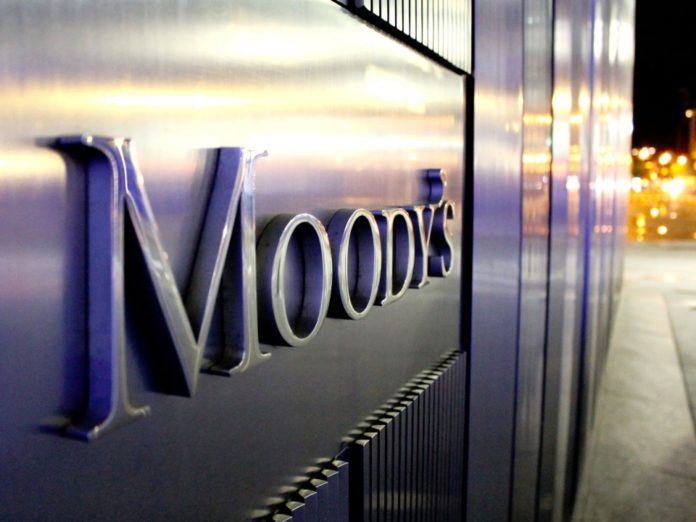KARACHI: Moody’s Investors Service has placed five Pakistani banks on review for downgrade, according to a statement released on Tuesday.
The five banks to be reviewed are Allied Bank Limited (ABL), Habib Bank Ltd. (HBL), MCB Bank Limited (MCB), National Bank of Pakistan (NBP) and United Bank Ltd. (UBL). These banks’ B3 long-term local-currency deposit ratings, foreign currency deposit ratings and baseline credit assessments have all been placed on review for downgrade.
The decision to place these major Pakistani banks on review follows Moody’s decision just five days earlier on May 14, to place the Government of Pakistan’s B3 issuer and senior unsecured ratings on review for downgrade.
That decision came about as Pakistan has recently requested bilateral sector debt service relief under the recently announced G20 initiative. The rating is only likely to be confirmed at its current level, if Moody’s conclude that participation in bilateral debt service relief will not entail default on private sector debt.
RATING PARAMETERS:
The global rating agency’s research arm concluded that given the high credit linkages between balance sheets and sovereign credit risk, the government’s potentially weakened creditworthiness will weigh on the banks’ stand alone credit profile.
According to the banks’ latest financial statements, their direct exposure to government securities stood at around 7.6x of Tier-1 capital for ABL, 8.1x for HBL, 6.0x for MCB, 8.7x for NBP and 6.5x for UBL.
“The high direct exposure to government credit risk, renders the banks susceptible to event risk at the sovereign level and constrains their baseline credit assessments at the government rating,” Moody’s said.
Moody’s said it would also assess the impact of the coronavirus pandemic on economic and business activity, and on the financial performance of Pakistani banks, especially on their asset quality and profitability.
Further, there is a risk of a further weakening in the Pakistani government’s capacity to support banks in case of need.
“The local-currency deposit ratings of two rated banks, NBP and HBL, incorporate one notch of support uplift from their caa1 baseline credit assessments,” said Moody’s. Caa1 refers to the Moody’s rating below B3, and is judged to be ‘very high-credit risk’, as opposed to be B3, which is just ‘high-credit risk’.
LIKELIHOOD OF DOWNGRADE:
Whether or not the five banks are downgraded depends on whether or not the government of Pakistan’s rating remains the same.
Given the interlinkages between the banks and the government, the rating will stay the same, if Pakistan’s B3 sovereign rating is confirmed. However, Moody’s said that decision is also conditional on there being no material deterioration in banks’ standalone fundamentals throughout the coronavirus crisis.
However, should there be a downgrade of the sovereign rating, then that would be downward pressure on the banks’ ratings. That would signal a reduction in the government’s capacity to extend financial support to banks in case of need.
“Downward pressure on the baseline credit assessments of individual banks could also develop from a greater-than-expected deterioration in operating conditions from the coronavirus spread, weakening their asset quality, profitability, and capital adequacy,” Moody’s noted.

























